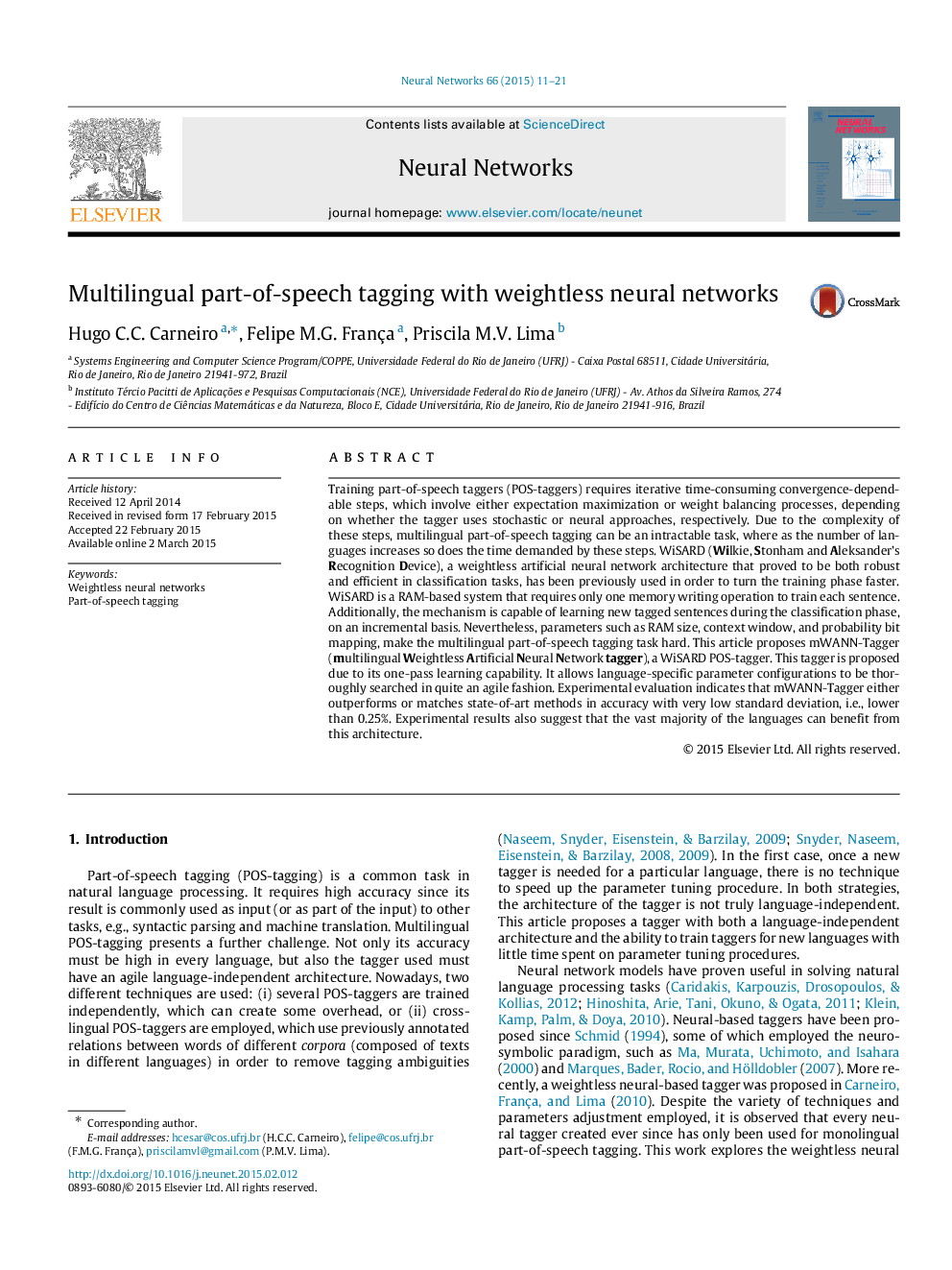| Article ID | Journal | Published Year | Pages | File Type |
|---|---|---|---|---|
| 404110 | Neural Networks | 2015 | 11 Pages |
Training part-of-speech taggers (POS-taggers) requires iterative time-consuming convergence-dependable steps, which involve either expectation maximization or weight balancing processes, depending on whether the tagger uses stochastic or neural approaches, respectively. Due to the complexity of these steps, multilingual part-of-speech tagging can be an intractable task, where as the number of languages increases so does the time demanded by these steps. WiSARD (Wilkie, Stonham and Aleksander’s Recognition Device), a weightless artificial neural network architecture that proved to be both robust and efficient in classification tasks, has been previously used in order to turn the training phase faster. WiSARD is a RAM-based system that requires only one memory writing operation to train each sentence. Additionally, the mechanism is capable of learning new tagged sentences during the classification phase, on an incremental basis. Nevertheless, parameters such as RAM size, context window, and probability bit mapping, make the multilingual part-of-speech tagging task hard. This article proposes mWANN-Tagger (multilingual Weightless Artificial Neural Network tagger), a WiSARD POS-tagger. This tagger is proposed due to its one-pass learning capability. It allows language-specific parameter configurations to be thoroughly searched in quite an agile fashion. Experimental evaluation indicates that mWANN-Tagger either outperforms or matches state-of-art methods in accuracy with very low standard deviation, i.e., lower than 0.25%. Experimental results also suggest that the vast majority of the languages can benefit from this architecture.
